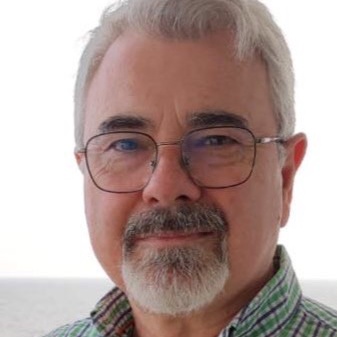
Luis Jose
Fuentes Melero
Catedraticos de Universidad
Departamento: Basic Psychology and Methodology
Centro académico: Faculty of Psychology and Speech Therapy
Area: Basic Psychology
Research group: Basic Psychology
Email: lfuentes@um.es
Personal web: https://webs.um.es/lfuentes
Doctor by the Universidad de Granada with the thesis Efecto de facilitación semántica de las palabras atendidas y no atendidas 1987. Supervised by Dr. Pío Tudela Garmendia.
I was director of the "Neuropsychology of Attention" (CTS-0135) research group at the University of Almería (1988-2004). During that period, I set up the experimental psychology laboratory and the CERNEP unit to study brain-injured patients. I focused on two main research lines: (1) attention from a neuroscientific perspective; and (2) the differential outcomes procedure (DOP) in human discriminative learning and memory. The first line was reinforced by studying brain-injured patients after my first sabbatical (1992-93) at the University of Birmingham with Professor Glyn Humphreys. I obtained funding from the National Plan I+D+i to strengthen research in the field of attention (project PB93-0729), and later in the field of attention deficits in neurological patients (project PM97-0002). Regarding the second line of research, I set out to promote learning and memory using DOP in children and people with Down syndrome in collaboration with Bruce Overmier (University of Minnesota, USA). Recently, I have extended the use of the DOP to improve recognition memory in people suffering from memory problems, such as the elderly and patients with neurodegenerative pathologies, as well as promote adherence to medical treatment in those patients. In 2005 I moved to the University of Murcia and set up the Cognitive Neuroscience lab (https://www.um.es/web/lab-neurociencia). I started a collaboration with Carmen Antúnez, head of the Dementia Unit at the Virgen de la Arrixaca Hospital, and Jose María García Santos, director of Radiology service at the Morales Meseguer Hospital. I first approached the study of cognitive deficits associated with hypertension (project SEJ2005-01223/PSIC). In subsequent projects funded by the Fundación Seneca, I focused on attentional and learning deficits in people diagnosed with dementia (project 03066/PHCS/05) and on the study of synesthesia through hypnosis (project 08828/PHCS/08). In 2008, my research underwent an important change with the achievement of funding within the Consolider Ingenio 2010 program (COEDUCA project CSD2008-00048), funded with 4 million Euros, coordinated by Manuel Carreiras (BCBL). The project addressed the study of the factors contributing to academic achievement from an interdisciplinary perspective, collecting data from genetics, fMRI, cognitive testing, and temperament profiles. In 2013, I enjoyed a new sabbatical at the University of Oxford with Glyn Humphreys and Roi Cohen Kadosh. I learned to use NIBS techniques and started a collaboration on children’s math anxiety with Roi Cohen. I have obtained several funding for the study of neurological, cognitive, and emotional factors that influence children’s math performance. We designed a computer-based training program that produced improvements in inhibitory control, intelligence, reading, and math grades, as well as in brain functional connectivity (projects PSI2010-09551-E; PSI2011-23340; PSI2014-53427-P; PSI2017-84556-P, from AEI; and 19267/PI/14 from Fundación Seneca). Currently, I’m leading a project on the effects of electrical brain stimulation on sustained attention and working memory (project PID2021-125408NB-I00). I have published in prestigious international journals and have been highly cited (h index = 32, cites: 3.268, Scopus data). I have supervised 17 doctoral theses, and two researchers were granted a Juan de la Cierva post-doc. My research has reached the media's interest, e.g., Le Monde de l’Intelligence, the SINC agency, Radio 5, Radio Murcia, and local newspapers. I have been a member of the panel of AQU, ICREA (Catalonia), ERC-Starting Grants (Brussels), and ANEP coordinator in Psychology. I have given more than 65 invited conferences around the world.









